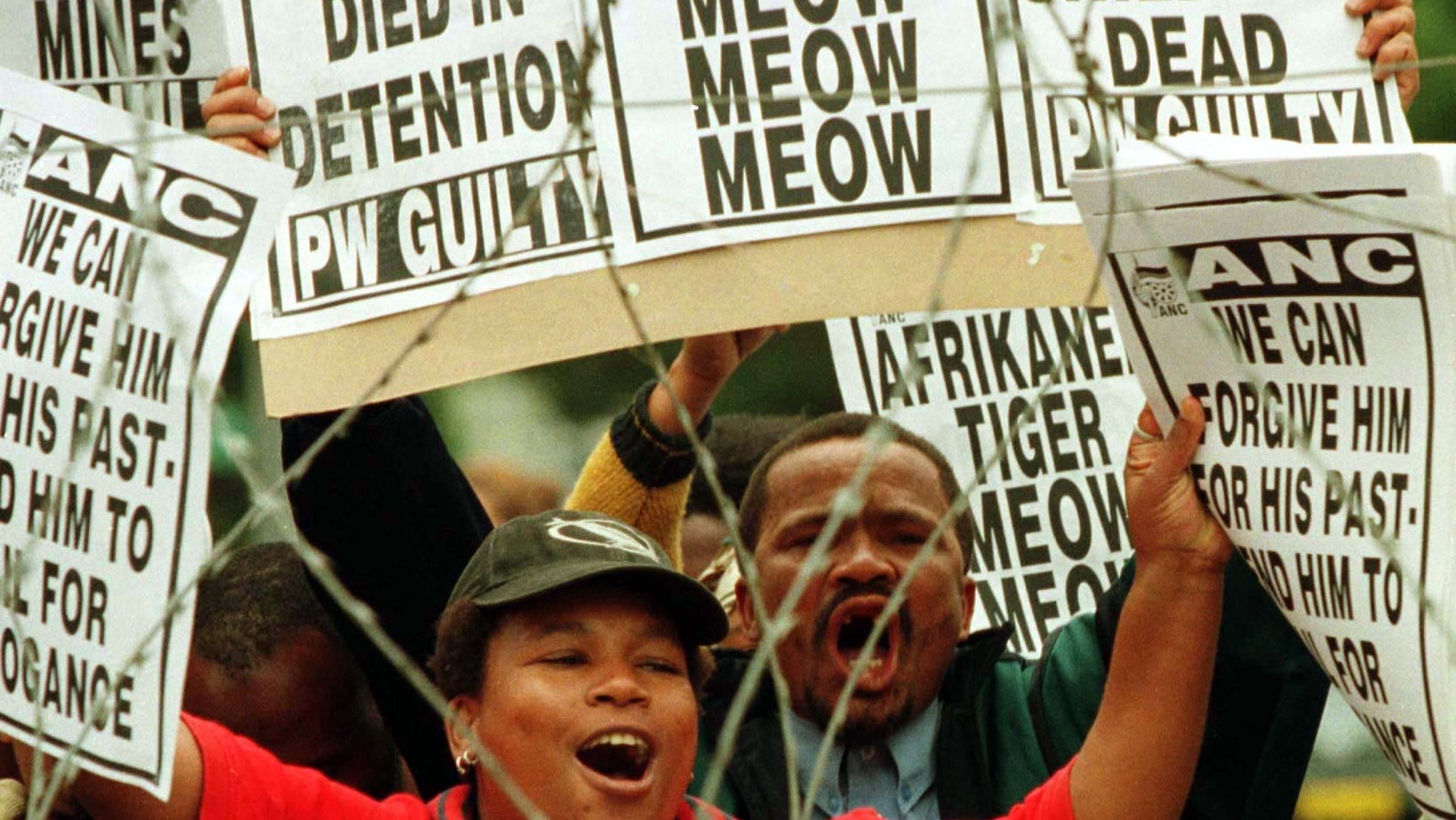Africa’s biggest media group, Naspers, has finally apologized for its role during Apartheid
This past weekend, South Africa’s biggest media group, Naspers, did something it should have done 19 years ago: apologize for the key role it played during Apartheid.


This past weekend, South Africa’s biggest media group, Naspers, did something it should have done 19 years ago: apologize for the key role it played during Apartheid.
While the apology, delivered by a senior executive, Esmarè Weideman, took many by surprise, it did little to shed light on how Naspers–now Africa’s largest media company with a market value of over $60 billion–was complicit in upholding South Africa’s system of Apartheid.
The apology, which coincided with the media company’s centenary celebrations, was angled on how the company has evolved throughout the years: from being a mouthpiece of Apartheid-rule in South Africa to a global media giant. The wait for the company’s centenary year is a significant, but the timing was odd.
After all, when given the chance to come clean during South Africa’s Truth and Reconciliation Commission in 1996, Naspers refused to give a public account of just how deep its collaboration ran with the Apartheid government. The truth was never told.
Instead, a group of conscientious 127 journalists who had worked for the company, defied the company’s management and delivered individual submissions acknowledging their role in upholding the system of Apartheid through their work as journalists. Ton Vosloo–the longest-serving executive of the company, who retired in April as chairman–was dismayed by this. For Vosloo, the actions of the 127 journalists were “a sour note” (pdf) in his illustrious media career.
Now in 2015, at its centenary, the continental media giant—which, beyond print, now also provides pay TV to over 10 million households across 50 sub-Saharan African countries, and owns a valuable stake in the Chinese internet company, Tencent—has delivered a late apology.
What is missing from Naspers’ apology
When the prominent anti-Apartheid activist, Steve Biko, was killed in detention, it was Die Burger–one of Naspers’ oldest daily newspapers–which sided with the security police in an editorial, three days after Biko’s death.
The Afrikaans newspaper argued that the growing list of accusations against the security police for killing and torturing of political prisoners were “venomous” with the “purpose to discredit South Africa’s police.”
For many more deaths like Biko’s and hundreds of people who were held in detention, Naspers publications not only towed the Apartheid government’s line, but also began normalizing the ideology of racial segregation–justifying violence of South Africa’s Apartheid government.
Media Monitoring Africa—a non profit organization which critically monitors South African media—analysed over 1,800 newspaper articles from 1976 and 1987, in a study on the role of the print media during Apartheid.
The study found that besides the role played by many Naspers-owned publications as propaganda tools used to cover up human rights violations by the state–news reporting filled with racial prejudice was a common feature on the print pages, unfairly used to caricature black South Africans as inferior and violent.
In her speech on Saturday night, Weideman made mention of the company’s “complicity in a morally indefensible regime”, but could find no other instance to mention, other than Apartheid’s separatist policies which forced Die Burger’s first mixed race reporter, Conrad Sidego, to use a bathroom several blocks away from the company’s Cape Town head offices.
Weideman failed to mention how the company–formed and controlled by the progenitors of Apartheid, the National Party–defended racial segregation and underreported and distorted mass killings and political violence?
Why did Weideman not acknowledge this bitter truth, one widely known by many South Africans: that Naspers become more than just the mouthpiece of Apartheid, it became a shadow of it too.
A true apology–for a modern, global business–would’ve made mention of this.